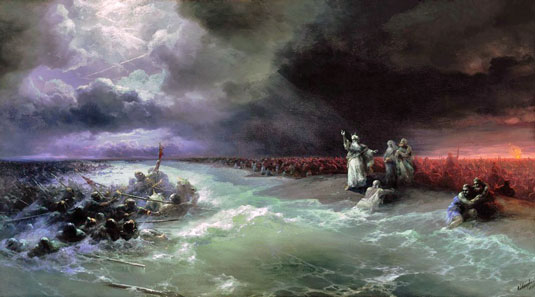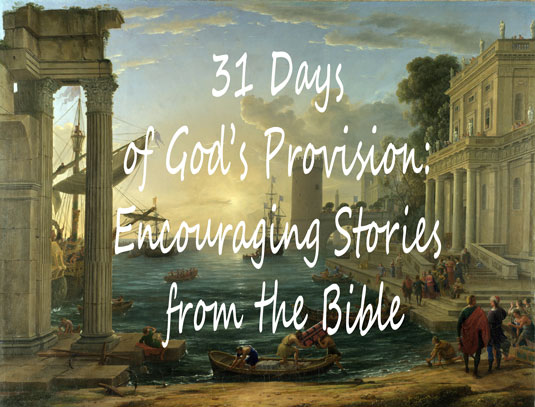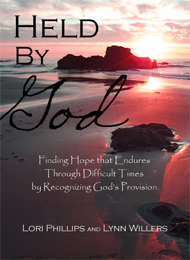 The Israelites had been in Egypt for 430 years, after Jacob’s family moved there from the land of Canaan during a time of famine. Though Jewish, his son Joseph was a governor in Egypt and a well-respected administrator under Pharaoh. Many generations of Israelites had since been born in the land, but the most recent Pharaohs were threatened by their numbers, and so the Jews were enslaved. Just prior to our story, a certain Pharaoh had instituted a program to rid the country of all male Hebrew newborns. Despite the barbaric practice, Moses is rescued from death, adopted by Pharaoh’s daughter and raised as an Egyptian.
The Israelites had been in Egypt for 430 years, after Jacob’s family moved there from the land of Canaan during a time of famine. Though Jewish, his son Joseph was a governor in Egypt and a well-respected administrator under Pharaoh. Many generations of Israelites had since been born in the land, but the most recent Pharaohs were threatened by their numbers, and so the Jews were enslaved. Just prior to our story, a certain Pharaoh had instituted a program to rid the country of all male Hebrew newborns. Despite the barbaric practice, Moses is rescued from death, adopted by Pharaoh’s daughter and raised as an Egyptian.
When he is forty years old, Moses is driven into the desert so God can prepare him for the great task he will later call him to. By the time our story opens, Moses has reached old age and has returned to Egypt. The Israelites are sorely oppressed and are crying out to God for deliverance. God tells Moses that he will not only deliver them from the hand of their oppressors but that he will lead them back into the land of Canaan which he had promised to give to their forefathers as an inheritance.
Then the Lord said to Moses, “Now you will see what I will do to Pharaoh: Because of my mighty hand he will let them go; because of my mighty hand he will drive them out of his country.” God also said to Moses, “I am the Lord. I appeared to Abraham, to Isaac and to Jacob as God Almighty, but by my name the Lord I did not make myself fully known to them. I also established my covenant with them to give them the land of Canaan, where they resided as foreigners. Moreover, I have heard the groaning of the Israelites, whom the Egyptians are enslaving, and I have remembered my covenant. “Therefore, say to the Israelites: ‘I am the Lord, and I will bring you out from under the yoke of the Egyptians. I will free you from being slaves to them, and I will redeem you with an outstretched arm and with mighty acts of judgment. I will take you as my own people, and I will be your God. Then you will know that I am the Lord your God, who brought you out from under the yoke of the Egyptians. And I will bring you to the land I swore with uplifted hand to give to Abraham, to Isaac and to Jacob. I will give it to you as a possession. I am the Lord.’” Exodus 6:1-8, NIV
God instructs Moses to go to Pharaoh and tell him everything God tells him to say, but Moses is not sure about this plan, and is concerned about his speaking ability.
Now when the Lord spoke to Moses in Egypt, he said to him, “I am the Lord. Tell Pharaoh king of Egypt everything I tell you.” But Moses said to the Lord, “Since I speak with faltering lips, why would Pharaoh listen to me?” Exodus 6:28-30, NIV
God assigns Moses’ brother Aaron to help him. Now, the two of them are not exactly spring chickens. Moses is 80 years old and Aaron is 83 when God tasks the two of them to speak to Pharaoh.
Then the Lord said to Moses, “See, I have made you like God to Pharaoh, and your brother Aaron will be your prophet. You are to say everything I command you, and your brother Aaron is to tell Pharaoh to let the Israelites go out of his country. But I will harden Pharaoh’s heart, and though I multiply my signs and wonders in Egypt, he will not listen to you. Then I will lay my hand on Egypt and with mighty acts of judgment I will bring out my divisions, my people the Israelites. And the Egyptians will know that I am the Lord when I stretch out my hand against Egypt and bring the Israelites out of it.” Exodus 7:1-5, NIV
Moses and Aaron visit Pharaoh and give him the message. As God had predicted, Pharaoh does not receive the message with enthusiasm. This opens up a contest between the true living God of Israel, and the idolatrous gods of Egypt. God organizes a show of force through a series of plagues—frogs, pestilence, a bloody Nile, livestock sickness, boils, hail, and darkness. As Egypt experiences each new calamity, followed by Moses’ intervention which removes the plague, Pharaoh’s decision continues to vacillate between yes and no. Finally, after God takes the lives of Egypt’s first-born sons, Pharaoh relents and agrees to let the Israelites leave.
At midnight the Lord struck down all the firstborn in Egypt, from the firstborn of Pharaoh, who sat on the throne, to the firstborn of the prisoner, who was in the dungeon, and the firstborn of all the livestock as well. Pharaoh and all his officials and all the Egyptians got up during the night, and there was loud wailing in Egypt, for there was not a house without someone dead. During the night Pharaoh summoned Moses and Aaron and said, “Up! Leave my people, you and the Israelites! Go, worship the Lord as you have requested. Exodus 12:29-31, NIV
By now, the Egyptian people are so anxious for the Israelites to leave, that they help them pack.
The Egyptians urged the people to hurry and leave the country. “For otherwise,” they said, “we will all die!” So the people took their dough before the yeast was added, and carried it on their shoulders in kneading troughs wrapped in clothing. The Israelites did as Moses instructed and asked the Egyptians for articles of silver and gold and for clothing. The Lord had made the Egyptians favorably disposed toward the people, and they gave them what they asked for; so they plundered the Egyptians.
The Israelites journeyed from Rameses to Sukkoth. There were about six hundred thousand men on foot, besides women and children. Many other people went up with them, and also large droves of livestock, both flocks and herds. With the dough the Israelites had brought from Egypt, they baked loaves of unleavened bread. The dough was without yeast because they had been driven out of Egypt and did not have time to prepare food for themselves. Exodus 12:33-39, NIV
So now the Israelites are on the move! God leads them out to the desert toward the Red Sea. By day the LORD goes before them in a pillar of cloud to guide them, and by night, by a pillar of fire to give them light in the desert. One of the two is always present in front of the people. While the Israelites are well on their way, God arranges one more demonstration for the Egyptians.
When the king of Egypt was told that the people had fled, Pharaoh and his officials changed their minds about them and said, “What have we done? We have let the Israelites go and have lost their services!” So he had his chariot made ready and took his army with him. He took six hundred of the best chariots, along with all the other chariots of Egypt, with officers over all of them. The Lord hardened the heart of Pharaoh king of Egypt, so that he pursued the Israelites, who were marching out boldly. Exodus 14:5-8, NIV
The Israelites are trapped as the Egyptian army closes in. Stopped at the shore of the Red Sea, they can go no further. They are afraid, and call out to Moses to give them direction.
Moses answered the people, “Do not be afraid. Stand firm and you will see the deliverance the Lord will bring you today. The Egyptians you see today you will never see again. The Lord will fight for you; you need only to be still.” Exodus 14:13-14, NIV
The pillar of cloud moves from in front of the people to behind them, so that it stands between the Israelites and the pursuing Egyptian army. Moses then raises his staff and stretches out his hand, as commanded by God, and the waters of the Red Sea open to reveal a dry pathway.
Then Moses stretched out his hand over the sea, and all that night the Lord drove the sea back with a strong east wind and turned it into dry land. The waters were divided, and the Israelites went through the sea on dry ground, with a wall of water on their right and on their left. Exodus 14:21-22, NIV
Throughout the night, the cloud brings darkness to the Egyptians, but lights the way for the Israelites, so that all of the people are able to traverse the sea that night. Despite the darkness, the Egyptians continue to pursue the Israelites.
The Egyptians pursued them, and all Pharaoh’s horses and chariots and horsemen followed them into the sea. During the last watch of the night the Lord looked down from the pillar of fire and cloud at the Egyptian army and threw it into confusion. He jammed the wheels of their chariots so that they had difficulty driving. And the Egyptians said, “Let’s get away from the Israelites! The Lord is fighting for them against Egypt.” Then the Lord said to Moses, “Stretch out your hand over the sea so that the waters may flow back over the Egyptians and their chariots and horsemen.” Moses stretched out his hand over the sea, and at daybreak the sea went back to its place. The Egyptians were fleeing toward it, and the Lord swept them into the sea. The water flowed back and covered the chariots and horsemen—the entire army of Pharaoh that had followed the Israelites into the sea. Not one of them survived. Exodus 14:23-28, NIV
This vivid demonstration of God’s protection gave the people confidence in him and in the leadership of Moses. Though they would continue to need reminders in the future, their deliverance from Egypt and through the Red Sea, would be referenced again and again as testimonies of God’s faithfulness.
The Israelites’ story was one of obstruction, but God’s provision was one of conveyance.
Join me tomorrow for a story involving a barley field, love at first sight, and a provision of redemption!
 If you’ve missed any part of this series, you can find all of the posts in the side bar category 31 Days of God’s Provision.
If you’ve missed any part of this series, you can find all of the posts in the side bar category 31 Days of God’s Provision.
On the journey toward Home,












{ 1 trackback }